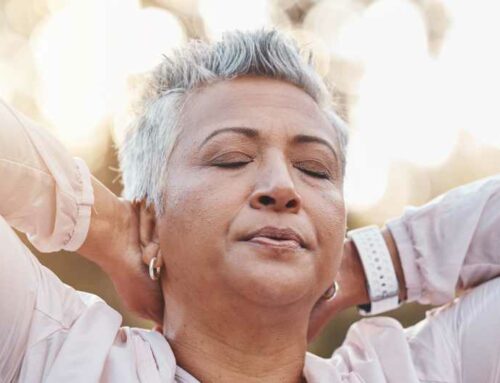Self-care quite literally means caring for your whole self. That can include anything we do to look after our physical, spiritual and emotional health — holistically. Self-care helps you maintain healthy relationships. That, in turn, allows you a better relationship with yourself. Engaging in a self-care routine has been clinically proven to reduce and/or eliminate anxiety and depression, reduce stress, improve concentration, minimize frustration, diminish anger, and also increase happiness and improve memory.
There is physical self-care — which simply means taking care of your body by feeding it well, ensuring you’re getting enough sleep, engaging in physical activity, and tending to your physical needs by way of doctor appointments, taking your prescribed medication and generally managing your health. I do this by choosing to eat whole foods, plant based, drinking sufficient water and performing my daily exercises specific to my disease.
Psychological self-care entails the way you think and the things you choose to mentally put your focus on. They play an important role in your mental well-being. This involves doing things that help you to stay mentally healthy. Inner dialogue, the way we talk to ourselves, is important for staying mentally healthy. Be positive with yourself. I am a “glass half full” kind of person. When looking at any situation, I tend to see more positive than negative. I try not to let the little things bother me.
Spiritual self-care does not necessarily mean you have to be a religious person. It does not necessarily have to involve religion. But if that is important to you, it can. It also can include anything that helps you nurture a deeper sense of meaning, understanding or connection with the world around you and the universe as a whole. It may mean different things to different people and can be achieved through thoughtful meditation, or enjoying a religious service. I would classify myself as agnostic, meaning I believe in something grander than us, but I have no idea what it is.
Emotional self-care is important for being able to deal with your emotions by including some healthy coping skills in your self-care repertoire — activities that may help us to express our deepest feelings and emotions. This could simply entail having a friend or partner you confide in, or expressing your thoughts through journaling. I am a huge advocate for writing out your emotions.
When you practice self-care you produce positive feelings, thereby boosting motivation and self-esteem, leaving you with increased energy with which to support yourself and your loved ones.
There are many self-care practices that will help ensure that you stay in a positive frame of mind while going through your healing journey. Choose whatever gives you true joy.
Here are just a few suggestions for your self-care journey:
- Read Positive affirmations
- Listen to or watch a comedy
- Write the things you’re grateful for that day
- Take a nice bath
- Breathe deeply in a quiet place with your eyes closed
- Light some candles
- Exercise — proven to release endorphins
- Close your eyes and breathe deeply
- Walk in nature
- Buy yourself flowers
- Write a list of things you’d like to do
- Keep a journal
- Make a vision board
- Declutter a room
- Read a personal growth book
- Go for a long walk
- Listen to your favourite music
- Watch a comedy
- Plan a getaway
- Colouring in your favourite colouring book
- Cook your favourite meal
- Spend some time with friends
- Go out for date night
- Try something new
- Give yourself a manicure
- Call or text someone you love
- Do some yoga poses
- Listen to your favourite podcast
- Spend time with someone who inspires you
- Stretch
- Do a spa day
- Do a digital detox
- Eat a salad or drink a smoothie
- Go out in the sunshine
- Visit your favourite place
- Get a massage
- Hug someone
- Drink a glass of water
- Get dressed up and put on some makeup
- Sleep
- Watch the sunrise/sunset
- Diffuse essential oils
- Do something nice for someone
- Go out for a coffee
- Read a book







Leave A Comment